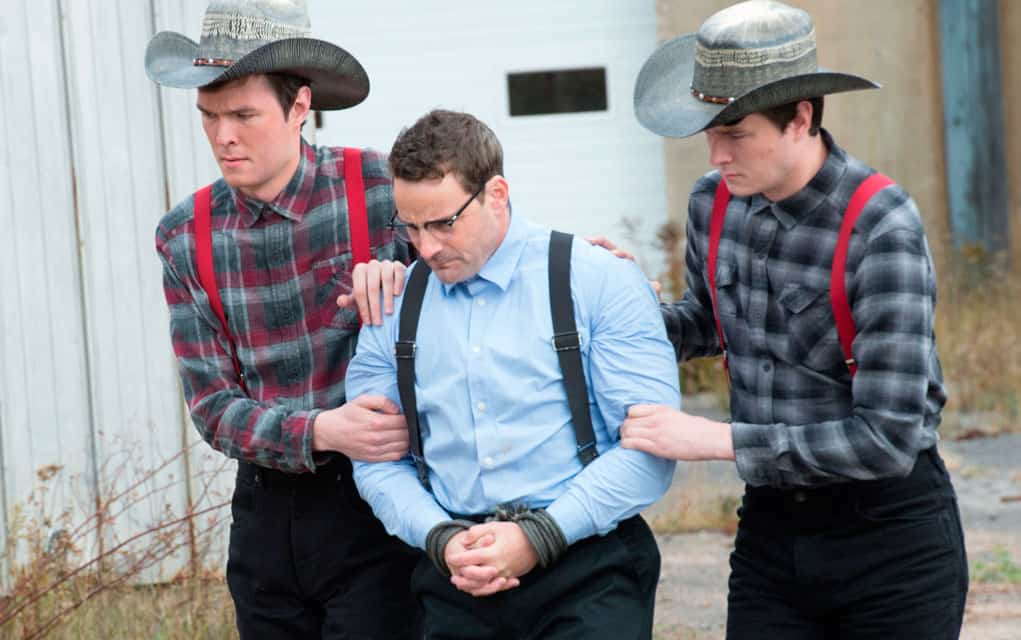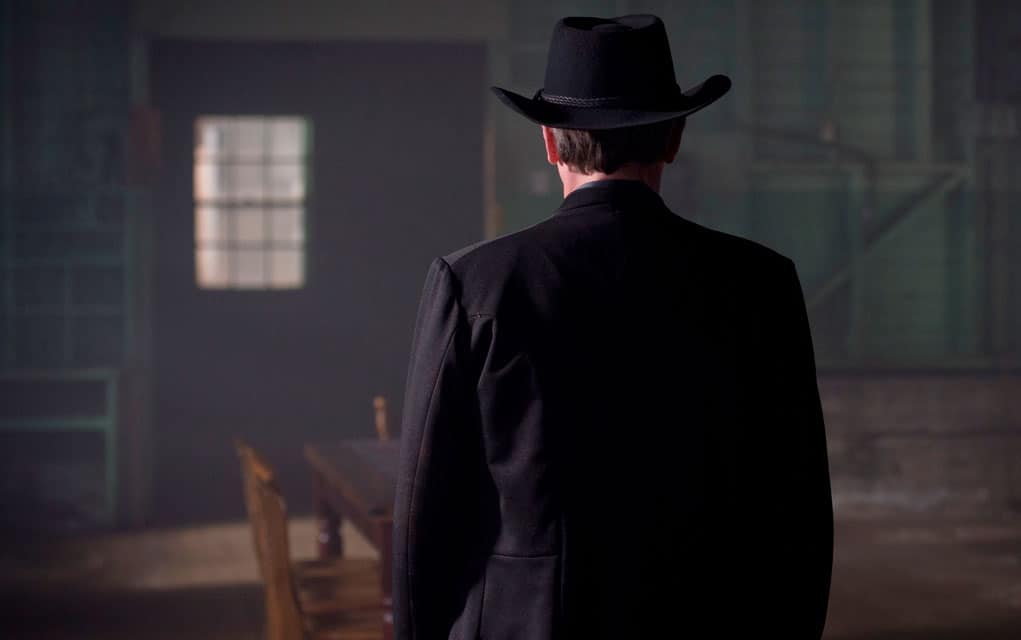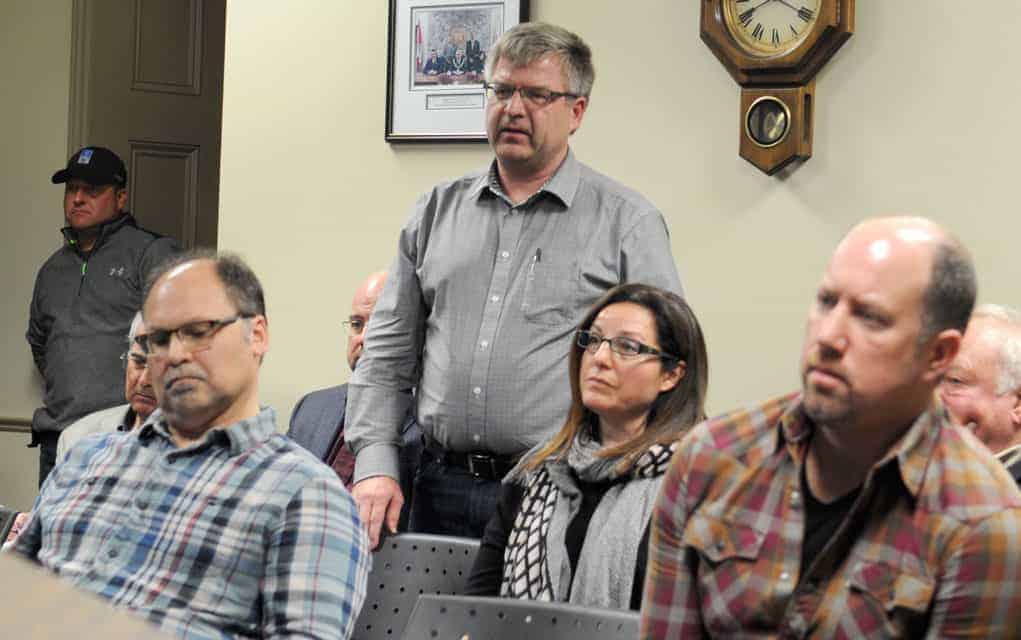CBC’s fictional Mennonite mob drama “Pure” wrapped up its initial run this week, and Mennonites who’ve seen the show won’t be shedding any tears if it doesn’t get picked up for a second season.
Barb Draper, editorial assistant at Canadian Mennonite Magazine and member of Floradale Mennonite Church, says there’s a sense of dismay from modern Mennonites at the inaccuracies in the show.
“Let me put it this way, I couldn’t watch it – partly because it’s not the kind of thing I watch – but just from watching the trailers, the connection that they drew between the different kinds of Mennonites – and they used horse-and-buggy Mennonites – it just seemed so inappropriate and untrue. There’s no way that I could get over the fact that it wasn’t believable,” Draper said.
She’s heard from those who’ve watched the full season that it’s disappointing to see them get the accents, clothing, buggies and even the church’s architecture wrong.
And there’s concern those who are unfamiliar with Mennonites here in Ontario will believe what they see on TV.
“In fact I’ve heard people say, ‘oh we had this conversation and we don’t know much about Mennonites, but is that what they’re really like?’ So that is a concern and it seems unfair for CBC to use it as a sensational setting when it’s not,” Draper said.
The show follows Mennonite pastor Noah Funk, who gets tangled up with “Menno Mob” leader Eli Voss.
Draper expects the Old Order Mennonite community isn’t aware of how they’re being depicted in the show since they don’t own televisions.
Marlene Epp, dean and professor of history and peace & conflict studies at Conrad Grebel University College in Waterloo, has watched the entire season.
“It’s tasteless from the point of view of lots of gratuitous violence, which is so at odds with the Mennonite community,” Epp said.
As someone who teaches Mennonite studies and tries to educate people about Mennonites, she says it’s disconcerting that the show’s producers have mixed up different Mennonite groups. She says they’ve misrepresented in particular the Old Order Mennonites, as it’s that community that is presented as the ones within which drug smuggling is occurring.

“Then there’s the Low-German speaking community, those who we would call Mennonites from Mexico, who do have cases of drug smuggling, but do not drive horse and buggy or dress like Old Order Mennonites. I think both of those communities are really misrepresented in the show. Yes it’s fictional, it’s entertainment, but there’s already so much misunderstanding and confusion about conservative Mennonite groups that I think the show just contributes to that,” Epp said.
CBC responded by saying Pure is “inspired by a real story, but is ultimately a work of fiction.” They said they never intended to offend members of Canada’s Mennonite communities.
“For the purposes of this story, the producers deliberately created a fictional community in order to not point fingers at any specific community because they didn’t want to single out a group of real people and subject them to unfair scrutiny,” the CBC said in a statement.
They went on to say they appreciate that Mennonites are known to be “very law-abiding, exemplary people.” But, the story of a Mennonite mob involved in the drug trade is real, despite the show’s Mennonite characters, their community and the choices they make being fictional, not accurate.
Epp says it’s caused quite a stir in the local modern Mennonite community.
“Many modern Mennonites are talking about it. Most of them stopped watching it after a few episodes because they thought it was so ridiculous. Most are quite critical of it.”
She hadn’t heard much about the show until a few days before the first episode aired in January. She found the trailer “bizarre” and wondered where the show’s creators got their information. As she watched the show she became even more perplexed.
“It’s not that I would say television network should never do shows about Mennonites, but if you’re going to do a show about Mennonites, do your research. Get your scenario somewhat right and do something that’s in good taste,” Epp said.
She notes in some communities, people are quite upset and a Mennonite conference in Winnipeg wrote letters to the CBC, opposing the show.
Epp is hopeful most Canadians who’ve watched the show are suspect enough of television to realize the story doesn’t represent Mennonites in Canada.
“It’s not that Mennonites are immune from violence, but this is pretty far-fetched stuff. And I think also for the Low-German speaking community, Mennonites from Mexico, for whom there have been problems with drug smuggling, it suggests that this is at the heart of the church community, when I think for the most part those are more isolated cases on the part of people who are really on the fringe of the community or have left it altogether,” Epp said.
And some people already view Old Order Mennonites as if there’s something wrong with them because they don’t drive cars or use technology at the level most Canadians do. Epp worries what negative perceptions and opinions could evolve from having them also perceived as being involved in the drug trade here in Canada.
But she’s also cautiously optimistic people watching it will become curious about the various Mennonite populations in Canada and go on to learn more.
“The show tries to explore some interesting themes. It does explore the contrast between good and evil and it does try to get at the notion of evil and sin existing within these so called pure communities and the dilemmas of people trying to live in God, the dilemmas they face. I think the show actually is probing at some really important and interesting questions. So I’ll give them that credit, but they do so in a way that can be problematic.”
As a Mennonite herself, she’d like the public to know Mennonites are no more perfect or “pure” than anyone else. The ones she knows don’t engage in criminal activity and just want to live in peace on their land and with their neighbours.
“I think the CBC does have a responsibility even if they’re using fictional stories to represent beliefs and traditions of real people in Canada accurately. And they’re simply not doing that.”









